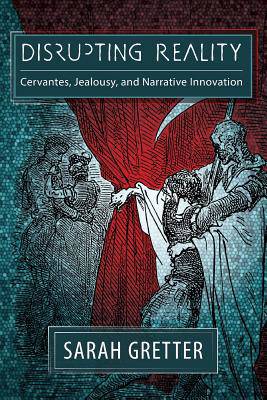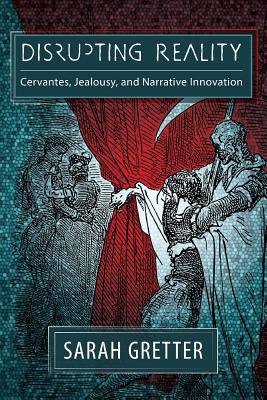
- Retrait gratuit dans votre magasin Club
- 7.000.000 titres dans notre catalogue
- Payer en toute sécurité
- Toujours un magasin près de chez vous
- Retrait gratuit dans votre magasin Club
- 7.000.000 titres dans notre catalogue
- Payer en toute sécurité
- Toujours un magasin près de chez vous
Description
The author invites readers to play with the idea that Cervantes's narrative innovation--best illustrated through Don Quixote--was underpinned by a series of novelistic explorations afforded by the power of jealousy to disrupt reality. Throughout his literary career, Cervantes constantly wove the theme of jealousy into stories that integrated dialogue, laughter, self-parody, and most importantly, the subjectivity of engaging with an ever-changing reality. This process is what exemplified, according to Bakhtin, the narrative innovation that was the novelistic genre.
Using insights from the field of clinical psychology and theories of the novel--with a particular focus on Bakhtin's approach to novelistic images--each chapter of this monograph explores novelistic aspects of jealousy as to highlight the development of Cervantes's narrative innovation. Through the experiences of Anselmo, Carrizales, and Auristela, but also those of Lauso, Reinaldos, Cañizares, and Andrés, the book explores concepts like curiosity, satire, and love as manifestations of the novelistic affordances of jealousy.
Exposing his jealous characters' struggles in their fight against the fear of losing control over their subjective truth, Cervantes uncovered how reliance on our own imagination and beliefs as a source of unique truth can lead to unfortunate consequences, while also isolating individuals who then become victims of their own minds. By contrasting the inner conflicts experienced by Cervantes's jealous characters, Gretter presents insights about narrative innovation, subjectivity, and dialogue that, hundreds of years later, shed a light on our Quixotic trust in today's digital world of ideas.
Spécifications
Parties prenantes
- Auteur(s) :
- Editeur:
Contenu
- Nombre de pages :
- 128
- Langue:
- Anglais
- Collection :
- Tome:
- n° 41
Caractéristiques
- EAN:
- 9781588713148
- Date de parution :
- 19-06-18
- Format:
- Livre broché
- Format numérique:
- Trade paperback (VS)
- Dimensions :
- 152 mm x 229 mm
- Poids :
- 181 g







